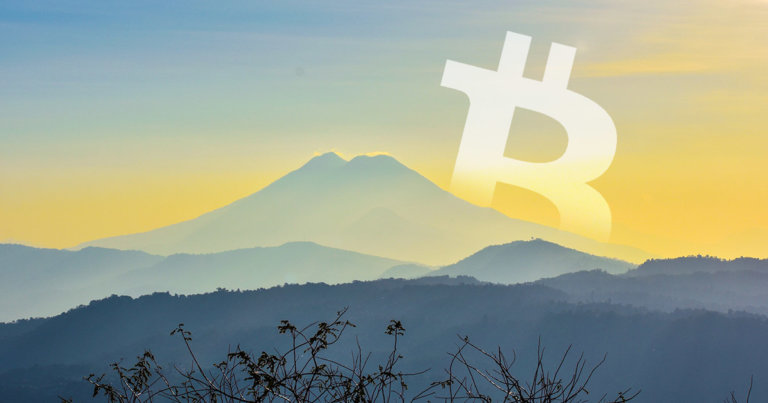 After El Salvador, who’s next to board the Bitcoin bandwagon?
After El Salvador, who’s next to board the Bitcoin bandwagon? After El Salvador, who’s next to board the Bitcoin bandwagon?
Some might wonder why El Salvador has chosen to embrace bitcoin in the first place.

Photo by Oswaldo Martinez on Unsplash
Many famous dates are littered throughout bitcoin’s history, with ground zero being January 3, 2009 – the day the genesis block was mined. In the intervening years, Satoshi Nakamoto’s peer-to-peer digital currency has hit milestone after milestone, from reaching dollar parity to gaining medium-of-exchange status when Laszlo Hanyecz paid 10,000 BTC for a pair of Papa John’s pizzas.
It’s safe to say the last year has provided us with yet more momentous moments in time, expanding the rich tapestry of the world’s best-known cryptocurrency beyond all measure. In years to come, though, one date may stand out among all others: September 7, 2021.
Bitcoin Becomes Legal Tender
Few could’ve predicted that a nation-state would one day adopt bitcoin as legal tender. And yet on this date, El Salvador did just that, sweetening the deal by giving all citizens $30 worth of BTC to encourage adoption. Henceforward, bitcoin will share official currency status with the U.S. dollar, an experiment that should highlight the former’s inherent advantages over the greenback while potentially kickstarting a process towards de-dollarization.
The adoption, by a sovereign state, of a borderless and decentralized digital currency, is an affront to the financial institutions that have long set the terms of play for emerging economies throughout the world. In fact, El Salvador’s President, Nayib Bukele, openly mocked the IMF while boasting about buying the dip. One wonders whether a ripple effect will be set in motion as other Central American nations consider following his lead.
Some might wonder why El Salvador has chosen to embrace bitcoin in the first place. Why now? Why bitcoin and not some other crypto-asset, one more geared towards being a medium of exchange rather than a store of value? Clearly, there are no simple answers. Rather, a combination of factors – not least the forward-looking attitude of a 40-year-old President leading a party called New Ideas – are involved.
Back in June, Bukele appeared on the What Bitcoin Did podcast to discuss the country’s monetary shift, and his comments are instructive for those seeking to understand more about the government’s motives.
“This is just exercising our sovereign right to adopt legal tenders,” the President explained. “Like we adopted the US dollar in the year 2001. What’s the difference? The only difference, probably, is the reason why we’re doing this. In 2001, it was probably done for the benefit of the banks. And this decision is done for the benefit of the people.
“Bitcoin is an open and free system. So, the people don’t have to trust us. They have to trust the system, and we trust the system.”
A Boost to Financial Inclusion
Bukele went on to point out that bitcoin would be a boon for remittances and economic inclusion since over two-thirds of Salvadoreños do not have access to traditional financial services and rely on money sent home from relatives living overseas. In 2019, remittance inflows from foreign-based citizens (mainly in the United States) totaled almost $6 billion, around a fifth of the country’s GDP.
With bitcoin now designated legal tender, there is suddenly a quick and cheap alternative to dispatching money to family and friends unable to access bank accounts or credit cards. According to the President, bitcoin could save citizens $400 million a year in remittance fees – around $60 per head of population.
Before El Salvador announced that it would accumulate sats on its Treasury balance sheet and make the asset legal tender, remittance transfers in BTC were already rising in the wake of the COVID-19 pandemic. The events of 2020 expedited the need for efficient, cost-effectively digital remittance services, with adoption increasing throughout Latin America, India, Southeast Asia, and Africa. Although bitcoin has been chipping away at legacy money wire companies like Western Union and MoneyGram for some time, last year is when it declared war.
In boldly choosing to use a currency that cannot be controlled and mismanaged by a central bank, the government of El Salvador is resurrecting economic principles that have lain dormant since the days of the gold standard, when nations could not artificially inflate their monetary base by printing paper ex nihilo.
While the pros of such a move are clear, the potential negatives are worrying: one economist believes the country could experience a constant outflow of greenbacks and constant inflow of bitcoin, draining the nation’s Treasury of its dollar reserves.
Of course, an appreciation in the price of bitcoin could make this no bad thing for the El Salvador government – and is likely to make citizens think twice about converting crypto into cash.
The Next Domino to Fall
Whatever happens, El Salvador will always be known as the first country to make bitcoin legal tender. In all likelihood, it won’t be the last: the Ukrainian Parliament recently adopted a law that legalizes and regulates cryptocurrency, and according to Professor Vyacheslav Evgenyev, the country could make Bitcoin legal tender by the start of 2023, creating a “dual-currency country” just like El Salvador. Swirling rumours suggest President Volodymyr Zelensky’s government has also met with counterparts in El Salvador to discuss the viability of such a plan.
Elsewhere, both Cuba and Panama are laying the groundwork to legalize cryptocurrency transactions, and wholesale adoption of bitcoin may eventually follow. The United States’ ban on remittances to the former won’t exactly put the brakes on such a process; Stateside-based Cubans currently have no option but to pay up to 30% in commissions to send money to loved ones on the island.
The last word, for the time being, should go to Nayib Bukele:
“The bitcoin system is so perfect that I think it’s gonna be the future. It is the present already in a lot of things – but it’s gonna be way bigger in the future.”






























































